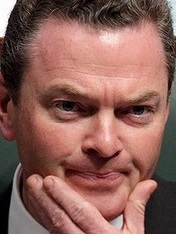Pyne's independent joy not backed by facts
 Media investigations suggest federal Education Minister Christopher Pyne may be a little over-zealous in his backing of the independent public school system, with facts showing it may not be the complete solution he purports it to be.
Media investigations suggest federal Education Minister Christopher Pyne may be a little over-zealous in his backing of the independent public school system, with facts showing it may not be the complete solution he purports it to be.
Mr Pyne indicated in interviews last week that he would move to introduce a model similar to Western Australia’s Independent Public School system nationwide, saying that evidence from WA and internationally shows it is working.
The Independent Public School system was introduced in WA in 2010, allowing principals and parents' groups greater influence over how their school spends its funding allocations, among other powers.
Unlike private schools, independent public schools cannot refuse the enrolment of a student or charge them fees.
The Federal Government has backed Mr Pyne's call with a funding promise, pledging $70 million to move 25 per cent of Australian public schools over to the independent model.
Evidence from school results in WA and studies conducted in various other countries show the success of similar independent models (such as the 'charter school' system in the US) is dubious at best. There is no definite, repeated link between school funding autonomy and improved results, according to experts.
The Western Australian Education Department's university-run report into the early progress of the model last year returned some slightly underwhelming results.
The report compared a range of factors including NAPLAN results, science education monitoring, and year 12 tertiary admissions – as well as the perception of the system by students, school staff and parents. The report showed evidence that the perceptions of the school had changed, with many respondents saying they felt the academic atmosphere at the school had improved. This feeling was not backed by tangible results.
“In this early phase of the IPS development there is little evidence of change to student outcomes such as enrolment or student achievements,” the report surmised when it was handed down in May this year.
The claim was re-iterated by lead author on the report, the University of Melbourne's Professor Janet Clinton
“There was no hard evidence of any change to attendance, suspensions, or academic achievement,” Prof Clinton said.
Regardless, Mr Pyne said this week: “Anyone visiting Western Australian Independent Public Schools would be astonished at the transformative power of school autonomy. I have visited them and can tell you first hand that the outcomes for students in all aspects of their school has dramatically improved. The work the Western Australian Government is doing will set their state up for excellence in education for decades to come.”
International results from longer-running systems show less-than-decisive benefits too.
Several reports into the United States' trials of public-funded, privately-controlled schools have shown not only varying degrees of success, but a considerable amount were found to have diminished results compared to equivalent students in traditional schools. Stanford University's Centre for Research on Educational Outcomes' report comparing several US charter schools is available here.







 Print
Print